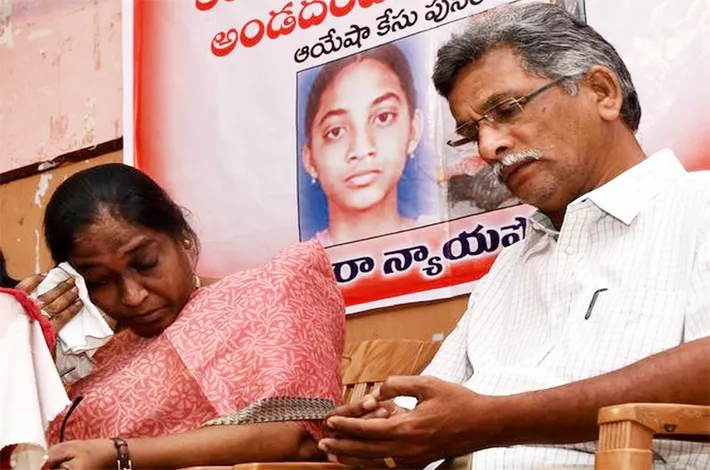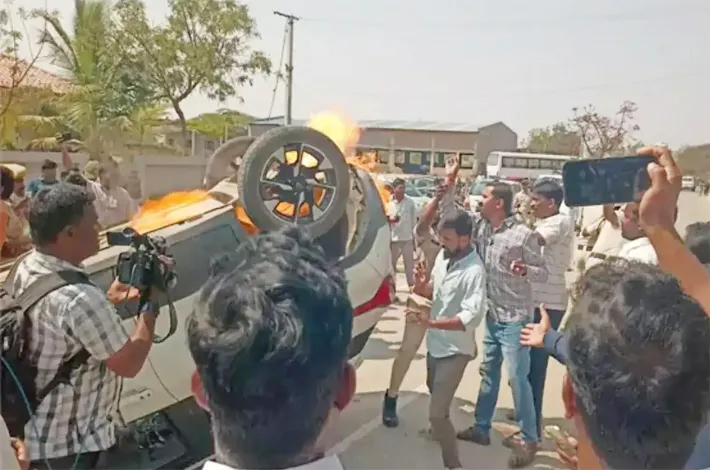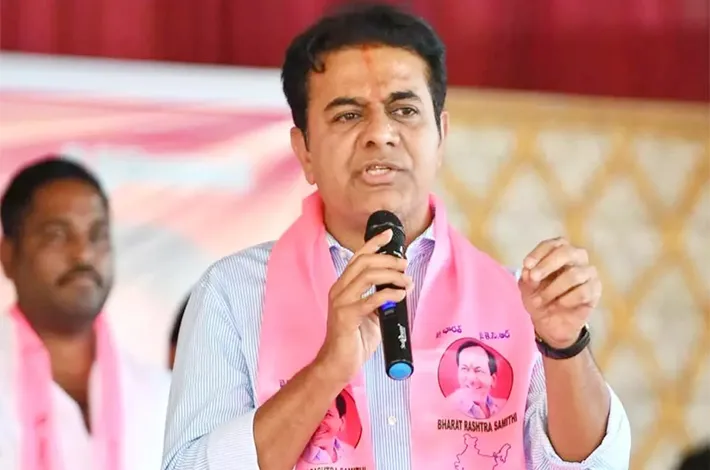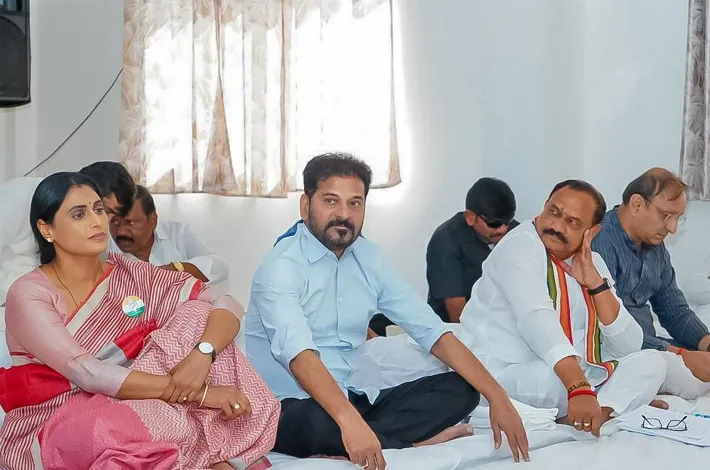Telangana’s allegations regarding Polavaram are baseless: Nimmala
18-06-2025 12:00:00 AM
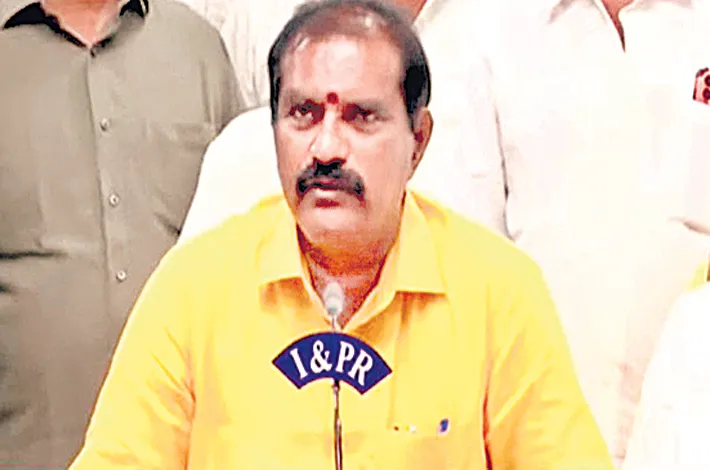
metro india news I amaravati
Water Resources Minister Nimmala Ramanaidu strongly countered the allegations raised by Telangana over the Polavaram-Banakacherla linkage project, calling them baseless and politically motivated. He accused leaders in the neighbouring state of using the project as a tool in their internal political conflicts, while asserting that Andhra Pradesh’s initiative is within legal and environmental bounds and does not infringe upon Telangana’s water rights.
Presenting a detailed PowerPoint presentation at the Secretariat in Amaravati, the Minister clarified that the project only utilizes surplus floodwaters — around 200 TMC out of the 3,000 TMC that flow into the sea from the Godavari river every year. “Not a drop of dependable or net water is being diverted,” he stated. “This is a legally sound and environmentally responsible project aimed at drought-proofing Rayalaseema.”
Nimmala reiterated that the Andhra Pradesh government, under Chief Minister N. Chandrababu Naidu, has never harbored ill-will or obstructionist intent toward Telangana’s irrigation projects. “Our Chief Minister has always believed in the equal development of both Telugu states,” he said. “We never objected to Telangana’s projects — even when many were taken up without mandatory approvals.”
He pointed to projects such as Devadula, Bhima, and Sitarama Sagar Lift — the latter reportedly 75% complete — that were allowed to progress despite pending clearances. “We never blocked Telangana’s plans. But now, while Banakacherla is still in its preliminary phase, objections are being raised. This hypocrisy must be called out,” he remarked.
Taking direct aim at former Telangana Chief Minister K. Chandrashekar Rao (KCR) and former Andhra CM Y.S. Jagan Mohan Reddy, Nimmala showcased video clips of their past statements supporting Godavari floodwater diversion to Rayalaseema. “KCR once said this was the only way to save Rayalaseema from drought. Now, when in opposition, his party raises objections. What changed?” he questioned. He also questioned Jagan’s silence on the current developments, despite once claiming to be the “son of Rayalaseema.”
Explaining the technical details, Nimmala said the Polavaram-Banakacherla linkage project would be executed in three stages:
Phase 1: Water diversion from Polavaram to Prakasam Barrage
Phase 2: Lifting water from Prakasam Barrage to Bollapalli Reservoir (capacity: 173 TMC) through six lifts
Phase 3: Transporting water from Bollapalli to Banakacherla via three lifts and two tunnels
He stressed that all activities are being undertaken in line with Central Water Commission (CWC) norms. “We’ve submitted the preliminary report to the CWC. The Detailed Project Report (DPR) will be prepared only after receiving CWC’s clearance, and construction will proceed only after securing environmental permissions,” Nimmala assured.
Refuting Telangana’s objections, the Minister asked why projects initiated without clearances in Telangana have not been questioned with equal intensity. “Let them explain how rules didn’t apply to them,” he said.
He emphasized Andhra Pradesh’s constitutional and legal right as the downstream riparian state to utilize floodwaters that would otherwise flow wastefully into the sea. “We alone bear the brunt of Godavari’s floods. Using that water to meet drinking and irrigation needs is our natural right,” Nimmala declared.
Quoting the records of Apex Council meetings between both states, Nimmala said the minutes clearly show a cooperative stance between past chief ministers. “Chandrababu always believed in give-and-take between the two states,” he added, stressing that Andhra Pradesh’s demands are logical and well within the framework of inter-state river water law.
Calling for transparency, Nimmala said, “The facts about the Polavaram-Banakacherla project must reach the people of both Andhra Pradesh and Telangana. This is not a project against anyone — it is for the lifeline of Rayalaseema and a just use of floodwaters that otherwise go wasted.”
He concluded by reiterating that the state government remains committed to legal compliance, interstate cooperation, and the equitable use of water resources for sustainable development.





